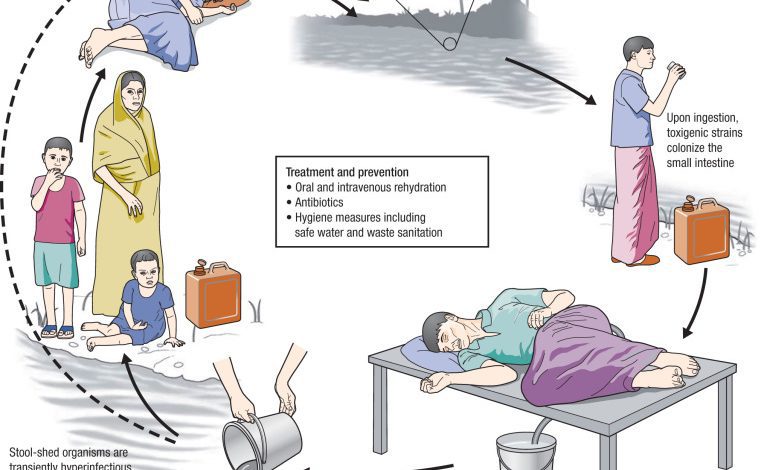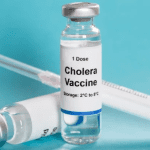Easy Ways To Prevent Cholera Outbreak In Your Family

It is no longer news that the Nigeria Centre for Disease Control and Prevention (NCDC) confirmed on June 22, 2024 that cholera has spread throughout Nigeria, with numerous cases reported across various regions of the country.
In recent weeks, Nigeria has experienced a significant increase in cholera-related fatalities across multiple states, including Bayelsa, Zamfara, Abia, and Cross River.
The outbreak has resulted in a considerable loss of life, highlighting the critical need for public vigilance in the consumption of food and drinks.
Speaking on the surveillance reports reaching his desk in the Ministry of Health, Lagos State Commissioner for Health, Prof. Akin Abayomi, explained that cholera is a highly contagious disease that causes severe diarrhea and can be life-threatening, adding that it poses a significant health burden in areas with poor water treatment and sanitation, and could impact Lagos State.
“Cholera spreads through direct transmission by eating or drinking contaminated food or water, and indirect transmission due to poor sanitation and lack of handwashing. Symptoms of cholera include severe watery diarrhea, vomiting, rapid dehydration, muscle cramps, fever, and sometimes collapse”, he said.
According to him, treatment options for cholera include rehydration using Oral Rehydration Salts (ORS) for mild to moderate dehydration. Intravenous Fluids are used for severely dehydrated patients given only in medical facilities and supervised by medical personnel.
READ: Cholera: NCDC Activates Emergency Centre As Death Toll Rises To 53
How To Prevent Cholera Outbreak In Your Family
While explaining how to prevent cholera outbreak, Abayomi said that ‘citizens are urged to ensure safe drinking water by boiling, chlorinating, or using bottled water, and avoiding ice products made from untreated water. Maintaining proper sanitation by using toilets, safely disposing of faeces, and avoiding open defecation is crucial. Practicing good hygiene, such as washing hands with soap and clean water regularly, especially before eating, preparing food, and after using the toilet, is essential and following food safety guidelines.’
He urged citizens to rely on the Ministry of Health, the Nigeria Centre for Disease Control (NCDC) and accredited local health facilities for guidance, advice, and updates on prevention, treatment, and management. He added that suspected cases can be reported via the following emergency hotlines: 08023169485, 08137412348, or by using helplines 767 or 112.
He emphasised the importance of maintaining high standards of hygiene and taking proactive measures to prevent cholera outbreaks.

Sodiq Lawal is a passionate and dedicated journalist with a knack for uncovering captivating stories in the bustling metropolis of Osun State and Nigeria at large. He has a versatile reporting style, covering a wide range of topics, from politics , campus, and social issues to arts and culture, seeking impact in all facets of the society.








